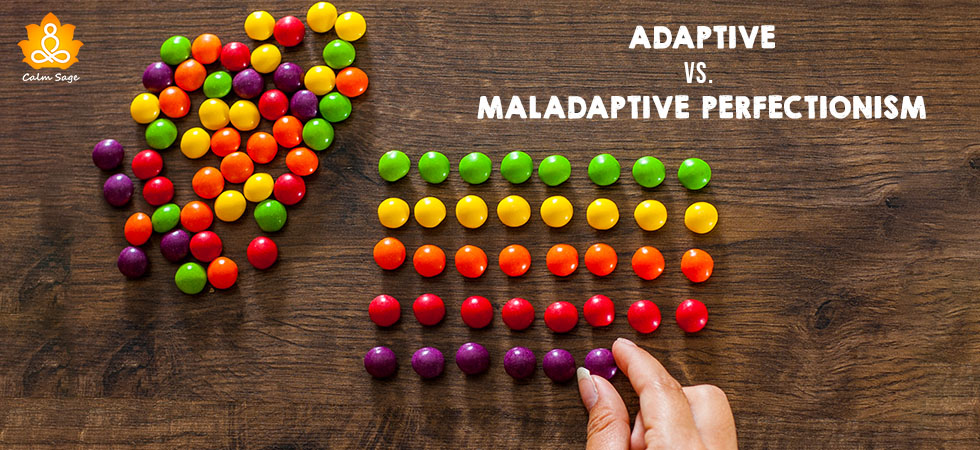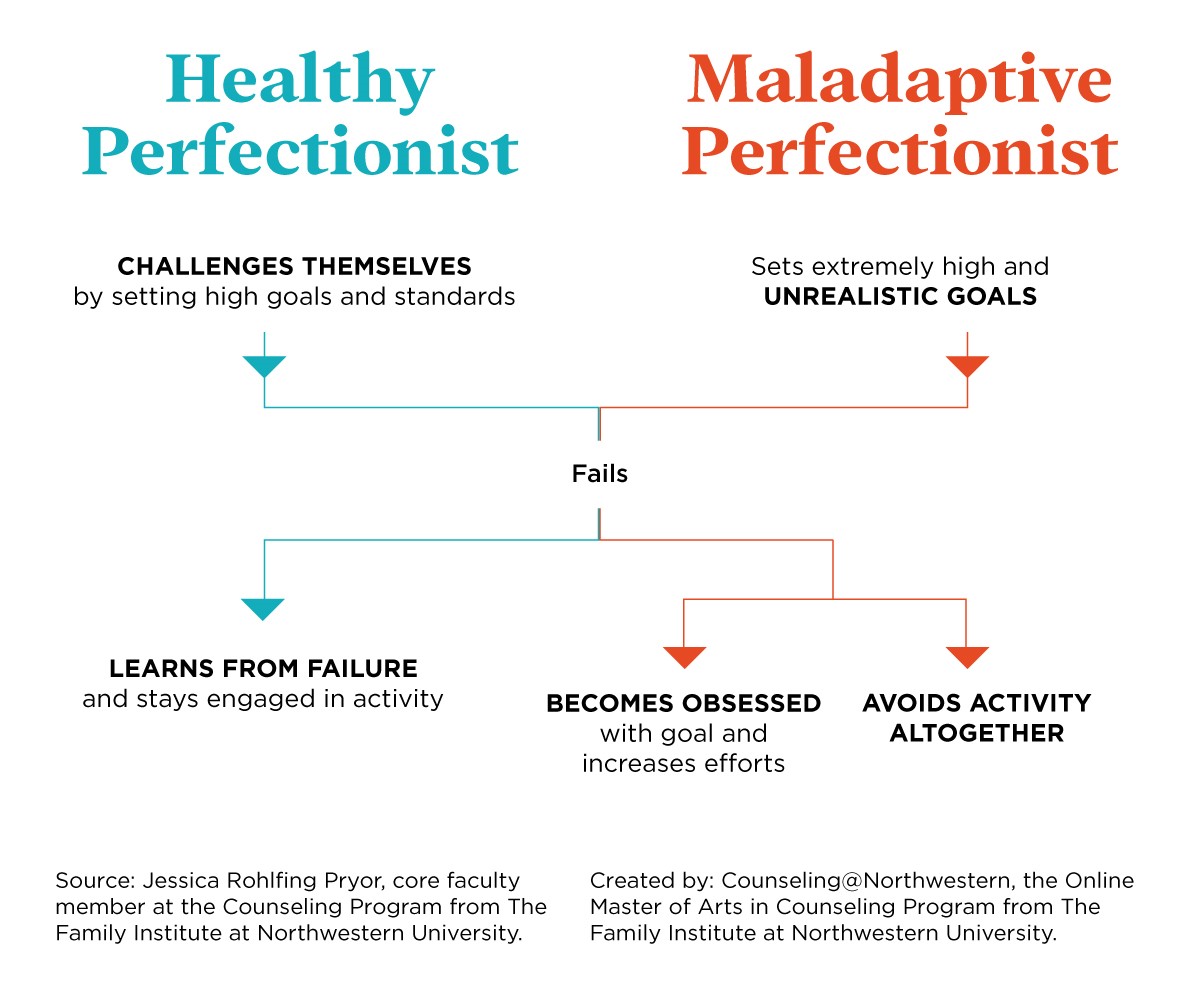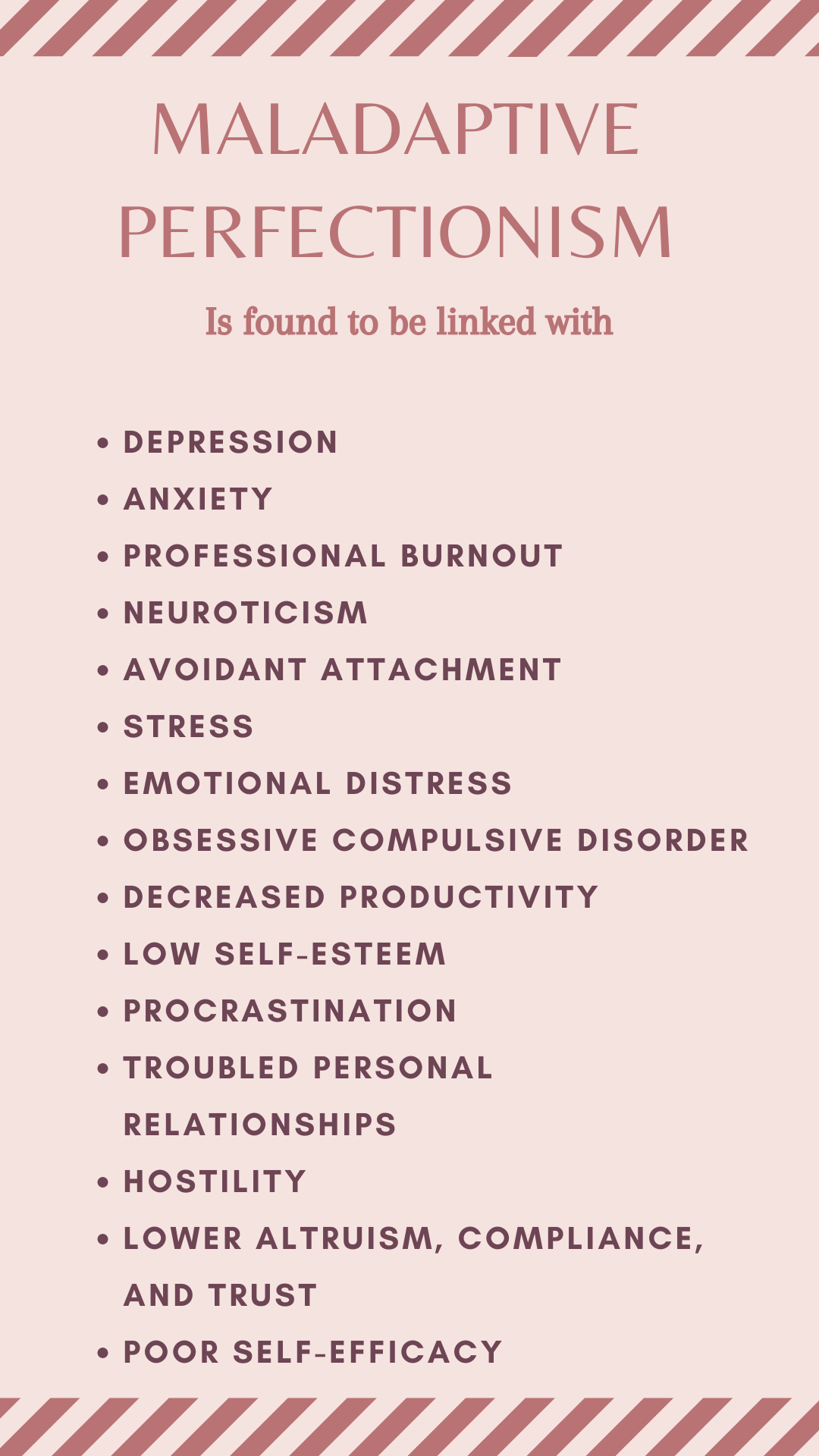Adaptive vs. Maladaptive Perfectionism: Knowing the Difference

Recently I came across a few posts that highlighted how perfectionism can turn against the well-being of an individual. From being one of the habits that kill your motivation to being a predictor of depression among people, there is a lot that perfectionism is found to be linked with. Surprising, right?
Interestingly, not all perfectionists will be facing these issues! Wondering why? Well, there is a particular type of perfectionism that causes the problem. Yes, there are types of perfectionism that are adaptive and Maladaptive Perfectionism. The former is considered healthy and the later is the one that causes problems.
Let us understand the difference between the two and also identify our perfectionism style!
Adaptive vs. Maladaptive Perfectionism: The Meaning
Adaptive Perfectionism
It is the healthy form of perfectionism that supports an individual’s well-being. It is also referred to as Perfectionist Striving. People who practice adaptive perfectionism will strive and thrive to achieve the goals they have set but at the same time, they will understand if all things are not accomplished.
They appreciate and accept the fact that it is okay if not everything is achieved with the perfectionism that they have planned in their head.
Adaptive perfectionists will look for success in their life, complete their tasks, and have high standards. But instead of being stressed about the outcomes, they will be adaptive towards the final outputs.
One of my favorite features of practicing adaptive perfectionism is taking into account the strengths and limitations that allow an individual to set realistic goals. Plus, this strikes out the chances of overexerting oneself. So your mental peace and strength are stored.
According to Stoltz & Ashby 2007,
“Adaptive perfectionism is characterized as a normal, healthy type of perfectionism and is defined by deriving satisfaction from achievements made from the intense effort but tolerating the imperfections.”

Also Read: Adaptive Coping Skills You Need
Maladaptive Perfectionism
It refers to the unhealthy form of perfectionism that ends up taking a toll on an individual’s well-being. Another name for this unhelpful form of perfectionism is Perfectionist Concerns.
Individuals who practice this form of perfectionism are found to set high standards for themselves and when fear of failure to reach ends up making them feel stressed.
When the failure is encountered (because of setting tasks beyond one’s strengths) it gives rise to self-doubts, which in turn brings various other issues along with it.
What becomes more concerning about maladaptive perfectionism is the fact that to avoid this loop of
Setting high standards—> Failure—> Self-doubts—>Other Issues
The individual starts to avoid the tasks another assuming they do not align with their strengths and interests.
But wait! What if a maladaptive perfectionist ends up achieving the high standards or the unachievable tasks they have set for themselves? They will end up telling themselves that they are not good enough or the outputs are not as good as desired, again stepping in the loop of self-doubt!
So basically no matter whether they achieve the high set benchmarks or not, they will let the fear of failure or dissatisfaction paint the picture for them. They will be overly critical of their efforts and achievements as they have a strong urge to be perfect in society which for them is defined in terms of being absolutely flawless.
According to Stoltz & Ashby 2007,
“Maladaptive perfectionists possess a need to control their environment and when events do not go as planned, they develop negative attitudes.”
Adaptive vs. Maladaptive Perfectionism: The Differences
Now that you have a clearer picture of what adaptive and maladaptive perfectionism looks like, let us analyze some differences between them.
| Adaptive Perfectionism | Maladaptive Perfectionism |
| Also known as Perfectionist Striving | Also known as Perfectionist Concerns |
| Healthy practice; overall positive impact on an individual’s well-being | Unhealthy practice; overall negative impact on an individual’s well-being |
| Strives and thrives for success | Let the fear of failure control their ac |
| Sets achievable standards | Sets unreasonable and unrealistically high standards |
| The central focus is to do things right | The focus here is to avoid errors |
| Have a balanced thinking pattern | Have all or nothing thinking style (it is either perfection or failure for them) |
| There is sync between their set standards and performance towards achieving it | There exists a large gap between highly set standards and performance |
| Focuses on timely completion of the task | Engaged in the habit of procrastination to avoid errors |
| Motivated to achieve positive feedback | Motivated to avoid negative consequences |
| Able to experience pleasure and satisfaction from their efforts | Unable to experience pleasure and satisfaction from their efforts |
Maladaptive Perfectionism: Why Is it the Problematic
Running after mirage is never helpful! Every time you think you are almost there, it will end up fading up as you step closer to it. The same is the case of maladaptive perfectionism. An individual can continue to run after it but just like a mirage, it will fade away because “absolutely flawless” is just a misconception.
This process of running after an unachievable sense of perfectionism and getting exhausted is found to be linked with various mental health conditions and other lifestyle problems. Several studies have been conducted in this direction and all of them have hinted at a negative correlation between maladaptive perfectionism and the overall well-being of a person. We are sharing some of the key findings with you.

Are you Practicing Maladaptive Perfectionism?
To check whether you lie on the healthy or the unhealthy side of perfectionism we are sharing some signs of maladaptive perfectionism with you. If you can relate with four or more of these then you might be on the unhealthy side of perfectionism.
- You are always looking for ways to please others.
- You are criticizing others’ behavior.
- When you are being criticized by others, you tend to get defensive.
- Your thinking pattern is either black or white (all or nothing).
- You procrastinate on important tasks.
- You feel guilty and ashamed of your failures.
- You close yourself off to others.
- You tend to take things personally.
- There is a constant need to control your emotions.
- You are very critical of your own efforts.
Brownie Content: TED Talk Guide To Practice Healthy Perfectionism
While doing my research on how to break the loop of maladaptive perfectionism and ways to practice perfectionism I came across this amazing TED Talk by Dr. Domar. The title of her TED Talk is “Is there any such thing as healthy perfectionism?” Well, you might have an answer for this now.
So which type of perfectionism are you following in your life, adaptive or maladaptive one? Share your response in the comments section below!
If you are a rooter for adaptive perfectionism then keep going you are on the right track to achieve great things in your life. However, if your pattern of perfectionism resembles maladaptive perfectionism you don’t have to worry. Just remember the three important mantras to break out of this loop:
- You can always take steps to address your unhealthy perfectionism and your way out of it.
- Start practicing self-compassion (it is identified as a great tool to combat maladaptive perfectionism).
- It is okay to reach out for help. Connect with a mental health professional today because therapy is one of the most reliable ways to deal with maladaptive perfectionism.
Disclaimer: As BetterHelp Affiliate, We may receive compensation from BetterHelp or other sources if you purchase products or services through the links provided on this page.
You got this buddy!
Thank you for reading!




















